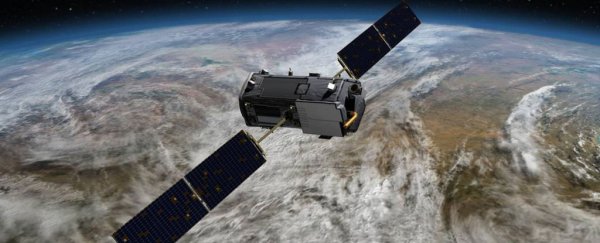One of the most glaring environmental blunders discovered this year was the revelation that nearly all of China's official greenhouse gas emission estimates this century have been erroneous, with the discrepancy amounting to almost 1 billion tonnes more CO2 a year than previously disclosed.
But it's unlikely that kind of mistake will happen again, with China's official news agency announcing that the nation will be launching two carbon-monitoring satellites next year as part of its effort to manage and reduce greenhouse gas emissions.
China's carbon-monitoring satellites are expected to be ready by May, having been in development for four years at the Changchun Institute of Optics and Fine Mechanics and Physics, which is part of China's Academy of Sciences.
According to an earlier report by the China Meteorological Administration, the precision of the satellites' monitoring will be greater than 4 parts per million (ppm) and will run in conjunction with ground-based data processing and verification systems.
At present, no launch date or other details have been shared, but the development signifies a new level of commitment by China to measure its emissions accurately.
Conventional greenhouse gas emissions are calculated off reported levels of fossil fuel usage, but this method is far from perfect. Not only is it limited to tracking industrial contributions to global warming – meaning it ignores 'organic' emissions such as those stemming from forest fires, plus other human-caused contributions – but it's prone to under-reporting or other errors, which China has shown recently.
Carbon-monitoring satellites, on the other hand – which are already used by Japan and the US – allow for far greater precision, directly tracking carbon dioxide levels in Earth's atmosphere over both land and water and registering CO2 movements in the air.
With world leaders currently engaged in high-level UN climate change talks and Beijing gripped in the midst of an 'orange alert' toxic smog cloud this week, moves by China to help it better manage its emissions problems couldn't come at a better time.
